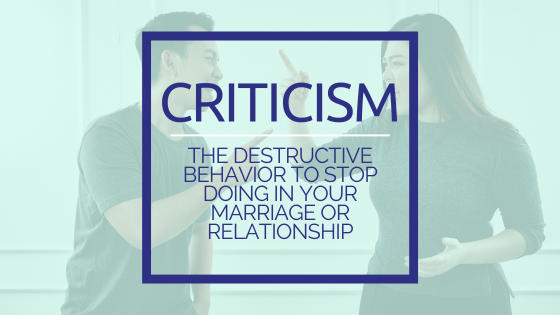Stonewalling
In the post, Four Behaviors in a Marriage that Predict Divorce: Gottman’s Four Horsemen, we explained The Four Horsemen of the Apocalypse, as outlined in Dr. Gottman and Nan Silver's book 'The Seven Principles of Making Marriage Work' and used in couples and marriage counseling – criticism, contempt, defensiveness, and stonewalling. To deepen our understanding of these unhealthy relationship patterns, this final post in the series will focus on the concept of stonewalling.
What is stonewalling?
Stonewalling occurs when one partner is feeling overwhelmed or flooded with emotions, leading to a withdrawal from the conversation, emotional shutdown, or refusal to engage. During stonewalling, one partner may become silent, avoid eye contact, or physically leave the room. Stonewalling creates emotional distance and frustration for the other partner.
Scenario showing stonewalling
Parker and Courtney have two young children. They have noticed that, as their kids are getting older, they fight more frequently about how to parent them. In the last couple months, after what feels like the same repeating fights, stonewalling has become a part of their negative communication cycle.
Just last week, the couple found themselves in a tense conversation about their parenting styles. Realizing that they needed to keep talking about the issue, Courtney approached Parker in the kitchen, saying, "I think you and I need to find a way to some middle ground with how we parent kids… don’t you think?”
Parker just shook his head and walked away from her, without saying a word.
Courtney was suddenly in the kitchen by herself. She tried to call out after Parker, but he just ignored her.
What is the antidote to stonewalling?
Gottman recommends that if either partner feels too emotionally overwhelmed or charged, they should share that information and ask to have the conversation at another time. When taking a break is necessary, it's important to set a specific time to return to the discussion. During the time apart, each partner should focus on self-soothing activities. The goal of this intervention is to return to the conversation with a clearer mind, regulated emotions, and a more intentional approach to resolving the issue.
How could this interaction have gone differently?
Instead of just leaving the room and ignoring Courtney, Parker could have shared that he was feeling overwhelmed or frustrated and asked to have the conversation at another time. Courtney would have then had the opportunity to acknowledge Parker's request and agree to revisit the discussion when they were both in a better state of mind.
Do you or your partner tend to stonewall during an argument? Marriage counseling can help. Contact us for a free phone consultation and start the process of repairing your marriage or relationship.
Article by Lindsay Poth, MA, LMFT Associate
Offering Austin Marriage Counseling + Gottman Method Couples Counseling



































































